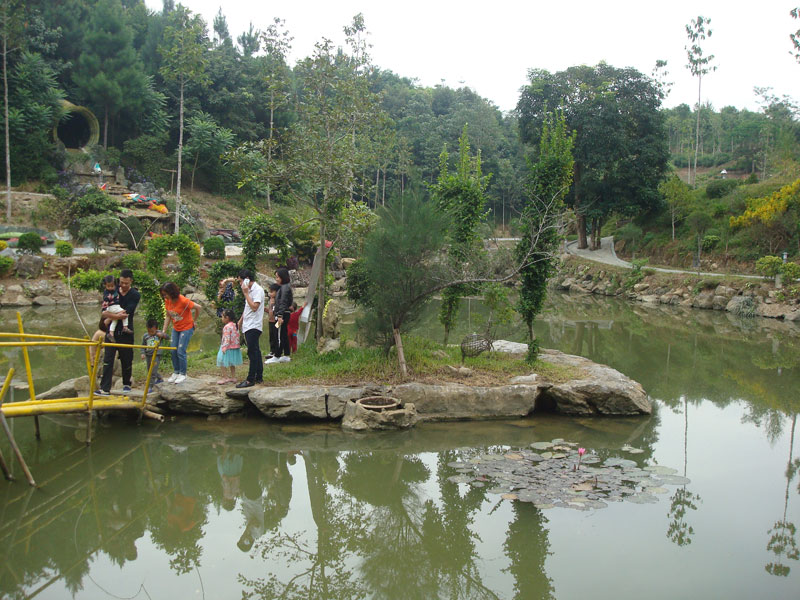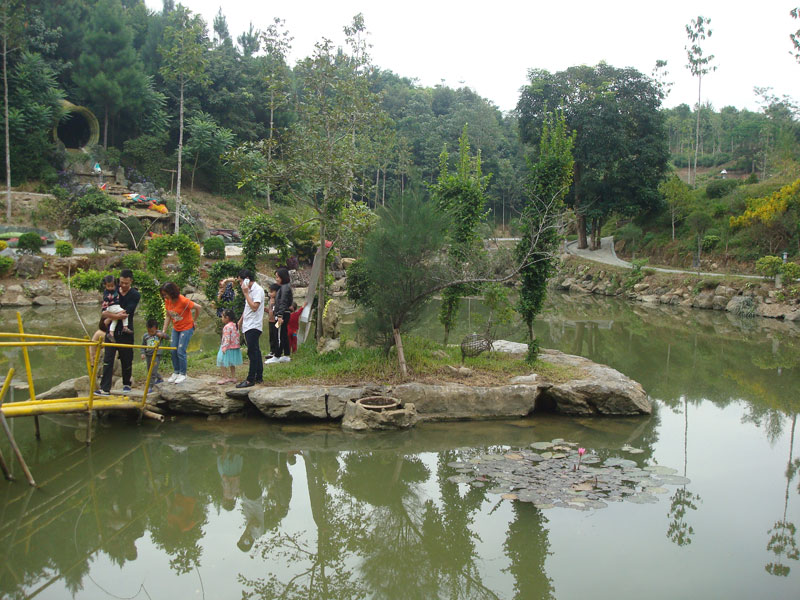
(HBO) – A number of communes and districts in Hoa Binh province have effectively attracted investment to tourism development in various areas, such as cultural tourism, eco-tourism, and religious tourism. Many domestic and foreign investors have poured money into tourism projects in the province.

The Heritage Park for Vietnamese scientists and scholars in Bac
Phong commune, Cao Phong district, attracts a large number of visitors.
The province is now home to 72 valid
projects in tourism, accounting for 12.2 percent of its total projects and
worth close to 20.6 trillion VND.
It also has 434 licenced lodging
facilities, nine local-level and one provincial-level tourist complexes, 12
passenger transport service providers and 13 tour operators. More than 300
boats are deployed to serve tourists in the Hoa Binh Reservoir tourist area
while over 100 electric cars serve tourist complexes in the district of Mai
Chau and Lac Thuy, providing jobs for more than 14,000 labourers./.
A diverse chain of eco-tourism and resort destinations concentrated in Hoa Binh city and the districts of Tan Lac, Da Bac, and Luong Son… Along with the launch of several key high-quality resort tourism projects, these developments have reshaped the landscape and enhanced the appeal of Hoa Binh as a travel destination.
Boasting diverse terrain, a mild climate, and rich natural resources, Cao Phong district is increasingly asserting its place on Vietnam’s tourism map, attracting both domestic and foreign visitors. The district is renowned for its stunning landscapes, majestic mountains, a crystal-clear hydropower lake, and the unique cultural identity of local ethnic groups.
With its pristine landscapes, unique cultural heritage of Muong ethnic minority, and an expanding range of visitor experiences, Tan Lac district of Hoa Binh has fast become a captivating destination for both domestic and international tourists.
Until now, Sung village in Cao Son commune, Da Bac district remains the only Dao ethnic community in Hoa Binh province to develop a community-based tourism model. Beyond its untouched natural landscapes, cultural identity serves as the cornerstone attraction for visitors.
Alongside the diverse cultural identities of the Kinh, Muong, Tay, Thai, Dao, and Mong ethnic people, Hoa Binh province is also renowned as the "capital" of the northwestern Vietnamese cuisine, offering unique and distinctive dishes. At festivals, during Lunar New Year (Tet), or on significant family or community occasions, special dishes are prepared, leaving a lasting impression on visitors.
A Phong Linh (Yellow Tabebuia) flower garden in Thang village, Thach Yen commune, Cao Phong district is currently in full bloom, drawing a large number of visitors.



